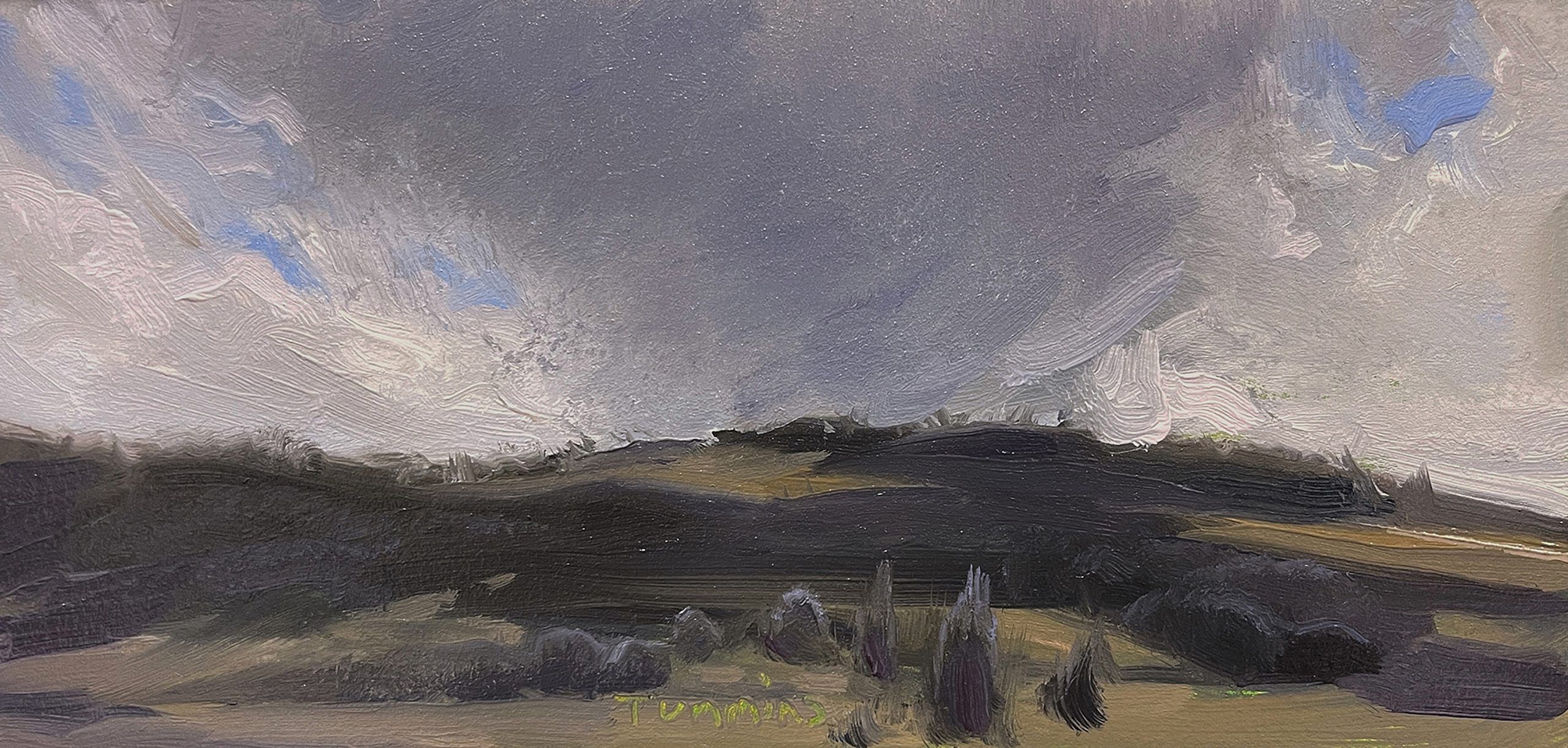
Resident Itinerant Drifter, With Apologies to the Yearning in my Chest for a Place to Hang my Hat
I. Impostor’s Summer
I brought no pictures to hang on the wall.
Before I left, I cut my hair
and saw for the first time a woman whose body
I could stand to walk around in, a woman sure
of herself, so I know I’m not the girl in the pictures.
I try to draw cold, hard lines between here and there.
Besides, I don’t need the pictures:
the woods outside my window are my father,
the moonlight my mother, the books I read my siblings.
In the sticky heat of July afternoon, caught
in a rare moment of levity, I pen a letter
and send it home — no reply.
I am no bird — wayfarer, woodland creature,
woman I am, nothing more, or less —
and no net ensnares me. But I want to float
up and out of myself and into the song
of the bluebird. Tu-a-wee.
I paint a picture for my mother, the real one,
and she hangs it in the bathroom in the house
I grew up in. Home? No, that isn’t it, at all.
II. Autumn Untethering
Thanksgiving is late this year. The trees
are nearly bare
except for the maples
burning a full, deep red
like the flame of a phoenix before it turns
to ashes,
and the crumbling stretch highway to my parents’ house
is a tired, sweeping immensity that I can spread myself out across
with no definite shape until I reach the horizon
and then some
or disappear entirely, unraveling like the seam
of a well-worn sweater,
trailing all the places I’ve been.
At supper, I am either full or starving depending on who asks,
and we sit in rigid chairs and try to not let ourselves spill into each other.
I am searching for some semblance of settling but there are only corridors
to the spaces in between the spaces in between, pieces of myself kept in boxes
lining the hallways — for continency’s sake, in case the next rendering of myself
doesn’t pan out.
One of these days, I’ll have to take them with me when I go, pile every last one into the trunk of my car and drive back down the highway to God knows where—I try to draw cold, hard lines between here and there.
Everything around me is dying
or making itself scarce, shedding
the pieces that won’t make it through winter.
III. T.S. Eliot in January
If I go out bare-skinned, sleepwalking into the morning,
the bite of the air feels almost like being held, almost,
if I stand stock-still and clench my fists, cleave
to January’s shaky breath, clutching it between my fingers.
“My whole life I’ve been lonely,”
said to no one in particular,
and I am answered with the echoing steps
of my own feet on stone streets. I keep my eyes fixed there¬—
to look another in the eyes is to admit to the vacancy
of my own gaze (to have squeezed the universe into a ball,
to roll it towards some overwhelming question).
At six years old, maybe seven, I’d walk beside the fence during recess, following it back and forth, eyes fixed before my feet, humming. Would it have been worthwhile to have kept my gaze forward, to face the weight of the eyes on me? I try to draw cold, hard lines between here and there.
On my birthday in an empty house, I sit at the piano
and pick at a melody I thought I’d buried.
(That corpse you planted last year in your garden, /has it begun to sprout?)
Winter has a way of smothering the bones
so that by its end they’re almost like that of a bird —
hollow and frail, brittle under pressure but apt for flight.
IV. Spring — or Recurring Apocalypses
While it’s still windy, before the heavy heat comes,
I linger a while longer in the bright quiet of the morning
to knock the frost off the words I buried alive last year.
(Prayers? Confessions? No, prospective longings
waiting to take root).
I dreamt I was in Eden the day before the world fell apart. Mine was the first sin, a temptation
not of taste or knowledge but of ownership,
the gripping illusion that I could claim a garden
as my own, to draw cold, hard lines between here and there.
The pines are teetering, laughing and screaming
in the wind, and I wish I was one of them.
I could stay here, plant myself on the forest floor
and see what takes. But I am in the business of vagrancy.
V. Incarnation
The last summer before I move away, I am watching myself
from the outside, putting all the people I’ve been into neatly packed boxes.
There are no cold, hard lines, only streams of water flowing into each other.
I pack the pictures, trade something nebulous
for the palpability of the strange tragedy of home
and the warm advent of body.